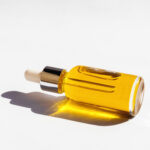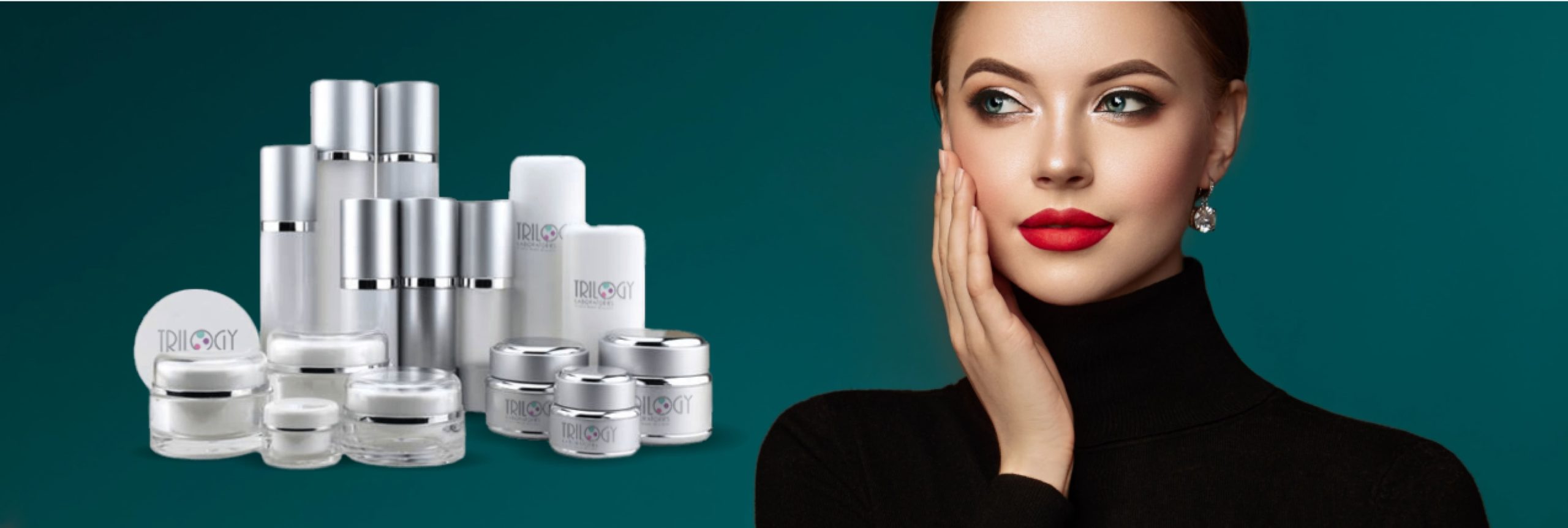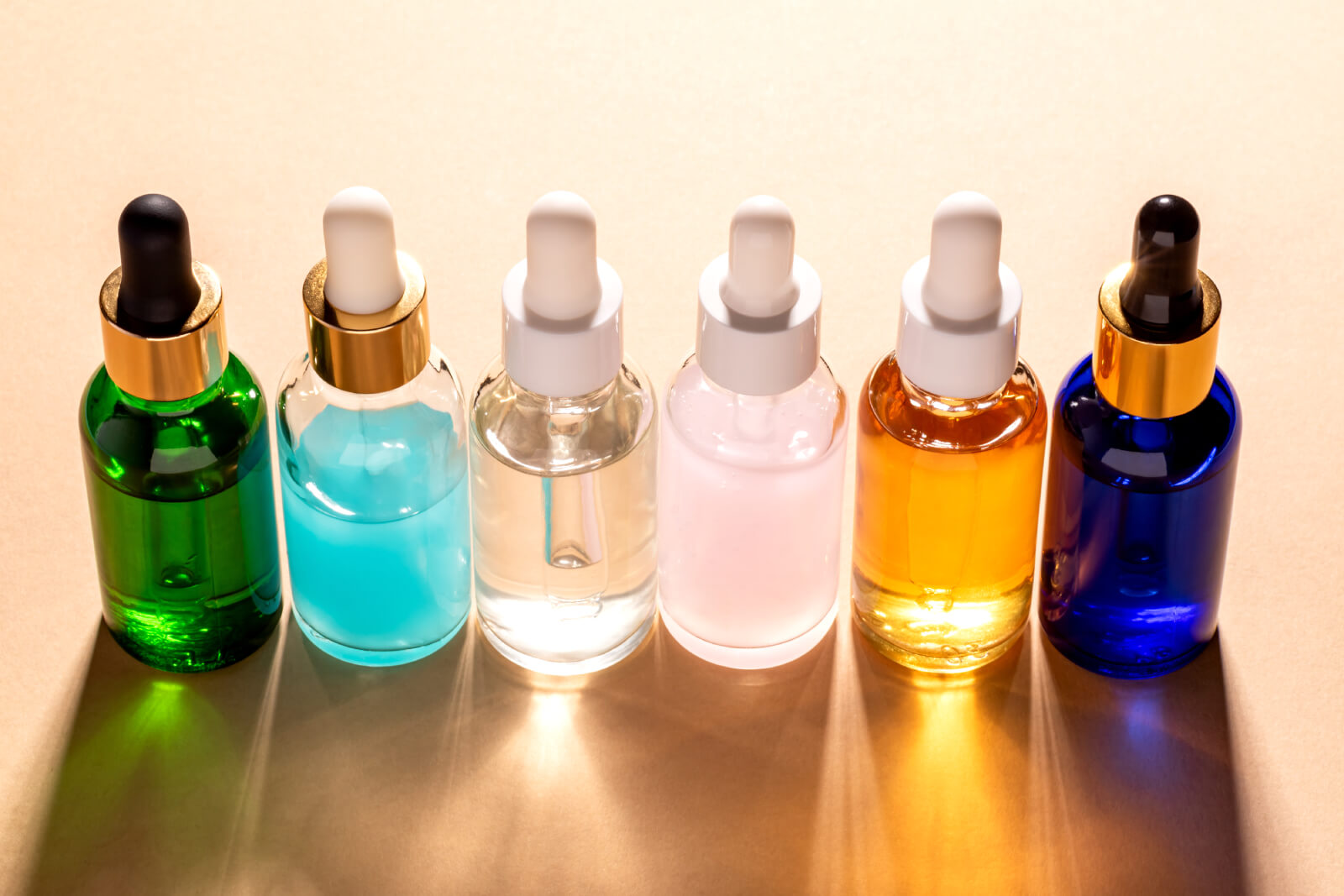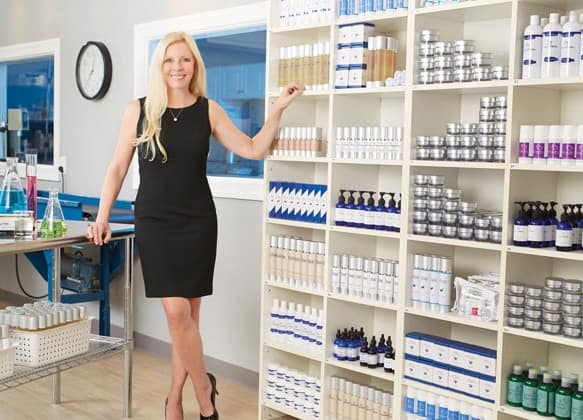In the quest for glowing, healthy skin, mixing skin care products can be a fun way to target your unique skin needs. But here’s the thing: Not all skin care ingredients get along with each other. While some combinations can enhance your routine and boost results, others can lead to irritation, reduced efficacy, or even damage your skin.
When done right, mixing products can amplify the benefits of your routine, leaving you with smooth, radiant skin. Unfortunately, if you’re not careful, it can lead to irritation or even less-than-stellar results.
Can You Mix Skin Care Products?
The short answer is yes—but with caution.
Certain products are designed to work together, complementing each other’s effects, while others can cause irritation or reduce the efficacy of each other when combined. The key to a successful skin care routine lies in understanding which products work together, which don’t, and how to layer them effectively.
The Secret to Mixing Skin Care Products: Layering & Alternating
When it comes to mixing skin care products, the best strategy is alternating between active ingredients rather than layering them all at once. Careful layering allows you to enjoy the benefits of each product while avoiding irritation or adverse reactions.
Instead of layering all your products in one go, alternating them based on time of day or frequency can make a huge difference. Here’s an example:
- Vitamin C is your morning hero, brightening and protecting your skin from environmental damage.
- Retinoids and exfoliating acids like alpha hydroxy acids (AHAs) or beta hydroxy acids (BHAs) work best at night, helping with cell turnover and revealing smoother skin.
By alternating these powerful ingredients (perhaps using one in the morning and another at night), you can enjoy their benefits without worrying about them clashing.
Patch Testing: A Simple Way to Keep Your Skin Happy
Before introducing any new product to your routine (or layering a bunch of them together), patch testing is a must! Simply apply a small amount of the product to a discreet spot, like your inner arm or behind your ear, and wait 24–48 hours to see how your skin reacts.
This process is especially important if you have sensitive skin. Patch testing new products or combinations will ensure that your skin doesn’t have an unexpected reaction.
Mixing Skin Care Products: Dos & Don’ts
Mixing skin care products can be a fun and effective way to create a personalized routine that works for your unique skin. By knowing which products pair well together and which ones should be kept apart, you can create a regimen that nurtures your skin while avoiding irritation.
Do: Layer from Thinnest to Thickest
Start with lightweight serums and treatments, followed by thicker moisturizers and oils. This order ensures that lighter products can penetrate the skin without being blocked by heavier formulas.
Do: Pair Complementary Ingredients
Some ingredients are the perfect match for each other. For example:
- Hyaluronic acid + retinol: Hyaluronic acid provides hydration while retinol works its magic at night.
- Niacinamide + retinol: Niacinamide soothes the skin, helping reduce any irritation from retinol.
Pair skin care products containing complementary ingredients together to boost their overall effectiveness.
Do: Always Finish with SPF in the Morning
When using actives like vitamin C, retinoids, or AHAs/BHAs, always follow up with SPF during the day. These ingredients can make your skin more sensitive to the sun, and sunscreen will keep you protected.
Do: Be Mindful of Product Texture
Certain products, like oils and water-based serums, might not layer well together. If in doubt, allow each product to fully absorb before applying the next.
Don’t: Use Products with Conflicting pH Levels
Some ingredients need a specific pH level to work effectively. For instance, vitamin C needs a low pH (acidic), while retinol prefers a more neutral to slightly higher pH (alkaline). Using them together can cause them to neutralize each other.
Don’t: Over-Exfoliate
Exfoliation is great for your skin, but too much of a good thing can be damaging. Exfoliating products, both chemical (like AHAs/BHAs) and physical (scrubs), can irritate the skin when used in excess.
Avoid using multiple exfoliants in the same routine. Stick to one exfoliating product and use it a couple of times a week to keep your skin smooth and radiant.
Don’t: Layer Too Many Products at Once
More doesn’t always mean better! While a multi-step skin care routine can be beneficial, it’s important not to overload your skin with too many products at the same time. Keep your routine simple and add new products gradually.
What Skin Care Products Should Not Be Mixed
Certain combinations are better left alone. Some ingredients can irritate your skin or even cancel each other out when used together.
Here are a few skin care combinations you should avoid.
Retinoids + Benzoyl Peroxide
Both retinoids (such as retinol) and benzoyl peroxide are effective treatments for acne, but when used together, they can cause excessive dryness and irritation. Additionally, they may reduce each other’s effectiveness.
Retinoids + Vitamin C
Vitamin C is an antioxidant that brightens your complexion, but it needs a lower pH to work its magic. Retinol accelerates skin cell turnover and prefers a slightly higher pH. When used together, these two can cancel each other out, leaving you with less-than-optimal results.
Use vitamin C in the morning and retinol at night.
Retinoids + Salicylic Acid
Salicylic acid is a BHA that helps exfoliate the skin, while retinol speeds up skin cell turnover. Combining skin care products with these two ingredients can be too harsh for your skin, causing dryness and irritation. Use them on separate nights to avoid over-exfoliation.
Benzoyl Peroxide + Hydroquinone
Both benzoyl peroxide and hydroquinone are strong skin care ingredients, and when used together, they can deactivate each other, making them less effective. It’s best to use them separately.
Two Products with the Same Active Ingredients
Using two products that both contain the same actives (like two different retinol products) can overload your skin and cause irritation. Stick to one active per routine to avoid this.
Strong Actives Together
Pairing strong actives—such as retinol, vitamin C, benzoyl peroxide, and AHAs/BHAs—can cause irritation and dryness. Focus on one active ingredient and rotate through them based on your skin’s needs.
What Skin Care Products Work Well Together
Some skin care combinations are a perfect match—and using them together can maximize your skin care benefits. Here are some of the best skin care ingredient combinations that work in harmony to bring out your skin’s healthiest glow.
Niacinamide + Retinol
Niacinamide calms and soothes your skin, making it a great partner for retinol, which can sometimes cause dryness or irritation. Together, they tackle everything from fine lines to uneven skin tone, with minimal irritation.
Hyaluronic Acid + Retinol/AHAs/BHAs
Hyaluronic acid is a hydration powerhouse that helps keep your skin plump and moisturized. When combined with the exfoliating or cell-turnover effects of retinol or AHAs/BHAs, it helps counterbalance any potential dryness.
Vitamin C + SPF
Vitamin C brightens and protects your skin, but because it boosts the effectiveness of sunscreen, you should always follow it with SPF. This dynamic duo helps protect your skin against sun damage while giving you a glowing complexion.
Benzoyl Peroxide + SPF
Since benzoyl peroxide can make your skin more sensitive to the sun, always pair it with sunscreen. This combo fights acne while keeping your skin shielded from harmful UV rays.
FAQs: Mixing Skin Care Products
What Skin Care Should Not Be Used Together?
Retinol and AHAs/BHAs (Glycolic, Salicylic, or Lactic Acid). Combining them can lead to over-exfoliation, irritation, redness, and peeling.
Is It Okay to Mix Different Brands of Skin Care Products?
Absolutely! It’s the ingredients that matter most. As long as the products complement each other, mixing from different brands can work wonders for your skin.
Is It Okay to Use Hyaluronic Acid with Retinol?
Yes! Hyaluronic acid is a perfect match for retinol. It hydrates your skin, helping to balance out any dryness or irritation caused by retinol.
What Should You Not Use with Retinol?
Retinol misuse, such as applying excessive amounts or combining it with other strong actives (e.g., AHAs, benzoyl peroxide), can lead to irritation, making it unsuitable for some users.
Recommendations for Safe Use:
- Always patch-test retinol before incorporating it into a routine.
- Start with a low concentration and gradually increase usage frequency.
- Pair with soothing and hydrating products (e.g., ceramides, hyaluronic acid) to mitigate irritation.
- Use sunscreen daily to protect photosensitive skin.
What Not to Use with Vitamin C on Skin?
Steer clear of retinol, salicylic acid, and benzoyl peroxide when using vitamin C for the best results.
Why Should You Not Mix Vitamin C & Retinol?
Vitamin C and retinoids like retinol have different pH levels and can cancel each other out when used together. Stick to one in the morning (vitamin C) and the other at night (retinol).
What Serums Cannot Be Used Together?
Avoid mixing retinol and vitamin C or AHAs/BHAs and vitamin C in the same routine. Use vitamin C in the morning (for antioxidant protection) and retinol at night (for skin repair). For AHAs/BHAs & retinols, alternate nights or use one in the evening and the other on separate days.
Can I Mix All My Skin Care Products Together?
As fun as it sounds, it’s best not to. Layering too many active ingredients can overwhelm your skin. Keep your routine simple and focused for the best results.
Build Your Private Label Skin Care Line at Trilogy Laboratories
Are you ready to build your skin care brand or expand your line of beauty products? Skip the messy at-home chemistry and let us formulate, manufacture, and label your skin care products in our one-stop shop.
At Trilogy Laboratories, our experienced project consultants are ready to guide you through the process of branding high-quality products that align with your company’s vision. We offer a beautiful selection of packaging, low minimum order quantities, and customizable formulas made with natural and scientifically advanced ingredients—all so you can wow your users, develop a loyal customer base, and grow your beauty brand.
Private label skin care doesn’t get any better than this.
Contact us today or call 239.939.5454 to get started with your private label skin care line.
Featured Custom Skincare Products

100% HA Serum Sample – PL212
$3.99
Add to cart
Hydrating AHA 12 Exfoliating Gel-PL701 | Trilogy Laboratories, LLC
$3.99
Add to cart
Luminessence Serum Sample – PL214
$3.99
Add to cart
Retinol Mask Sample – PL807
$3.99
Add to cart
Vitamin C 20% Serum Sample – PL200
$3.99
Add to cartPosted in Professional Skin Care



